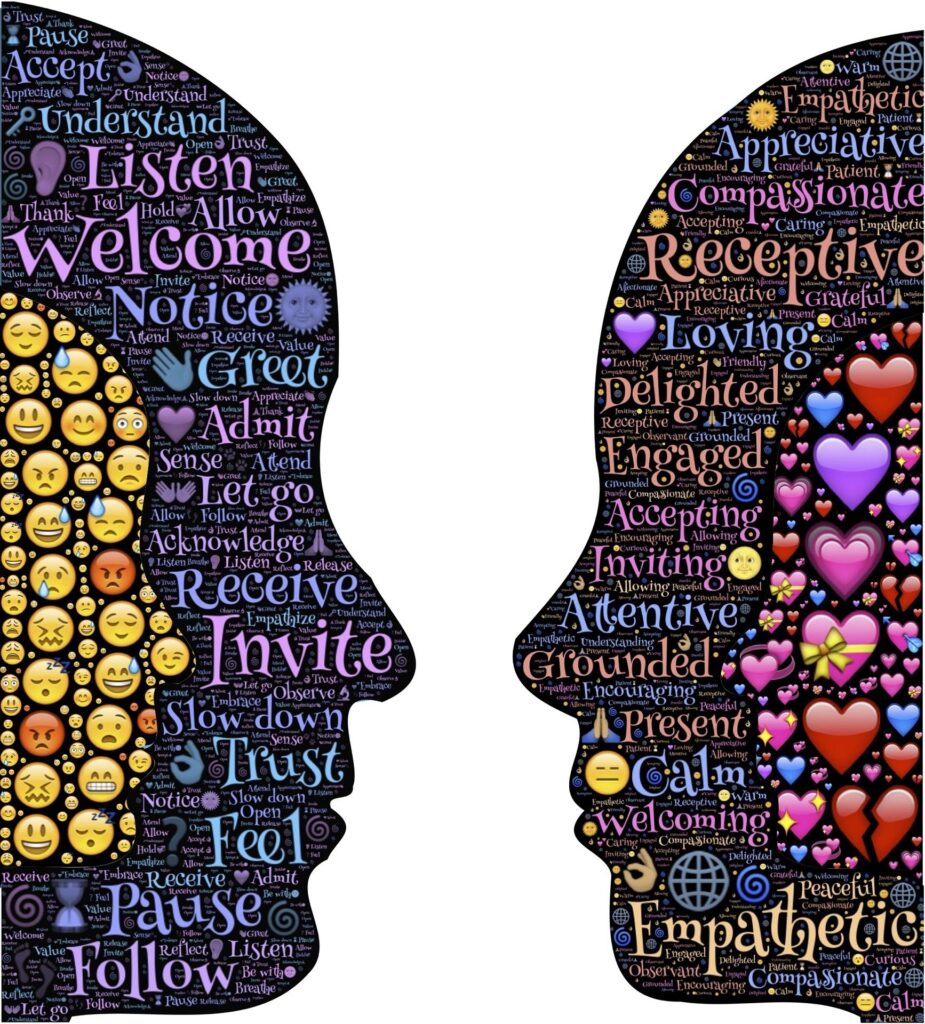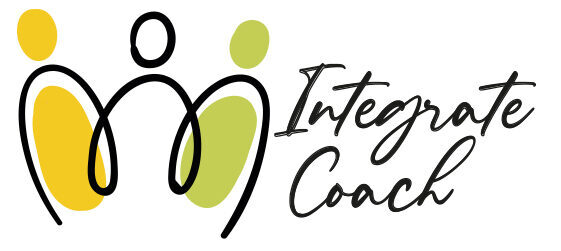Choosing the right career for your future is one of the most important decisions you will ever make. Your career affects your happiness, your income, your lifestyle, and your impact on the world. But, how do you know which career is right for you? And how do you make sure that your career choice will help you live the life you desire, achieving the success you want. Career choices are given much thought to, even at a young age but not all desires convert to choices made. This translation between what you want and what you choose, defines success and happiness.
In this article, we will share some tips and strategies on how to choose the right career for your future Here are the main points we will cover:
-
- Why choosing the right career is important for your future
-
- How to discover your passion, skills, and values
-
- How to research and explore different career options
-
- How to evaluate and compare different career paths
Why Choosing the Right Career is Important for Your Future
Choosing the right career is important for your future because it can affect many aspects of your life, such as:
-
- Your happiness: If you choose a career that you enjoy and find meaningful, you will be more satisfied and fulfilled with your work. You will also be more motivated, productive, and creative. On the other hand, if you choose a career that you dislike or find boring, you will be more stressed, frustrated, and unhappy with your work. You may also experience burnout, depression, or anxiety.
-
- Your income: If you choose a career that pays well and has good prospects, you will be able to afford a comfortable lifestyle and achieve your financial goals. You will also have more opportunities to grow and advance in your field. On the other hand, if you choose a career that pays poorly or has limited prospects, you may struggle to make ends meet and face financial difficulties. You may also have fewer chances to progress and develop in your field.
-
- Your lifestyle: If you choose a career that suits your personality, preferences, and needs, you will be able to balance your work and personal life better. But you will also have more freedom and flexibility to pursue your hobbies, interests, and passions. On the other hand, if you choose a career that clashes with your personality, preferences, or needs, you may have to sacrifice your work or personal life. You may also have less control and autonomy over your schedule, tasks, and environment.
-
- Your impact: If you choose a career that aligns with your values and goals, you will be able to make a positive difference in the world. You will also feel more proud and fulfilled with your work. On the other hand, if you choose a career that contradicts your values or goals, you may feel guilty or conflicted about your work. You may also feel less inspired and engaged with your work.
As you can see, choosing the right career is important for your future because it can affect your happiness, income, lifestyle, and impact. Therefore, it is worth spending some time and effort to find out what career is best for you.
At certain times when you feel like you are on a course that is not correct and the only way forward is Change, it is important in take the right steps to rectify it and choose a path that would provide all of the above and much more.

How to Discover Your Passion, Skills, and Values
One of the first steps to choosing the right career for your future is to discover your passion, skills, and values. These are the three main factors that can help you identify what kind of work you enjoy and excel at.
-
- Your passion: Your passion is what drives you and makes you excited about something. It is what gives you energy and motivation to pursue your goals. To discover your passion, ask yourself these questions: What do I love doing? What am I curious about? What makes me happy? What are my dreams?
-
- Your skills: Your skills are what enable you to perform well and achieve results in something. They are what give you confidence and competence in your work. To discover your skills, ask yourself these questions: What am I good at? What do I learn quickly? What do I get praised for? What are my strengths?
-
- Your values: Your values are what matter to you and guide your decisions in life. They are what give you meaning and purpose in your work. To discover your values, ask yourself these questions: What do I care about? What do I believe in? What do I stand for? What are my priorities?
Why Discovering your Passions, Skills and Values are Important
By discovering your passion, skills, and values, you can get a clearer picture of what kind of work suits you best. You can also use them as criteria to evaluate different career options later on.
In The Long Game: How to Be a Long-Term Thinker in a Short-Term World, Dorie Clark lays emphasis on the fact that the hours in a day (24 to be precise) are the same in everyone’s life. The key to becoming effective is how we choose to use this time. Success is not meant to last a short while, but long term and the manner in which we chose to live day-to-day impacts our career and our choices.(Long Game – dorieclark.com )
Our Passion, Skills and Values are a key identifier to achieve success in all walks of life. The manner in which we identify with these and inculcate it into our very fabric determines success.

How to Research and Explore Different Career Options
Once you have discovered your passion, skills, and values, the next step is to research and explore different career options that match them. The power of your thoughts will enable and guide you along in choosing a career that would provide you with satisfaction and purpose. Some ways that can help you research and find clarity are the following:
-
- Online research: You can use online tools and resources to learn more about different careers, such as their descriptions, requirements, salaries, outlooks, and more. Some examples of online tools and resources are: CareerOneStop, O*NET Online, Bureau of Labor Statistics, Glassdoor, Indeed, and LinkedIn.
-
- Informational interviews: You can talk to people who work in different careers and ask them questions about their work, such as their roles, responsibilities, challenges, rewards, and advice. Some examples of questions you can ask are: What do you do in a typical day? What do you like and dislike about your work? How did you get into this career? What skills and qualifications do you need? What are the opportunities and challenges in this field?
-
- Job shadowing: You can observe and follow people who work in different careers and see what they do in their work environment. You can also ask them questions and get feedback on your performance. Some examples of things you can observe and learn are: How they interact with their colleagues, clients, and customers. How they use their tools, equipment, and technology. How they solve problems, make decisions, and handle stress. How they balance their work and personal life.
-
- Volunteering: You can offer your time and skills to help out in different organizations or causes that interest you. You can also gain valuable experience and network with people who work in different fields. Some examples of things you can do are: Help out in a local charity, school, or hospital. Join a community service or social justice project. Participate in a fundraising or awareness campaign.
By researching and exploring different career options, you can gain more knowledge and insight into what kind of work appeals to you.

How to Evaluate and Compare Different Career Paths
After you have researched and explored different career options, the final step is to evaluate and compare them to find the best one for you. You can do this by using a simple matrix or table that lists the pros and cons of each option based on your passion, skills, values, and other factors that are important to you.
For example, let’s say you are interested in three career options: graphic designer, teacher, and accountant. You can create a matrix like this:
| Career | Pros | Cons |
|---|---|---|
| Graphic designer | – Matches your passion for creativity and art – Utilizes your skills in design and technology – Aligns with your values of self-expression and innovation – Pays well and has good prospects |
– Requires a lot of training and education – Involves a lot of competition and pressure – Demands a lot of time and attention to detail – May not offer a lot of stability or security |
| Teacher | – Matches your passion for learning and teaching – Utilizes your skills in communication and leadership – Aligns with your values of education and service – Offers a lot of satisfaction and fulfilment |
– Requires a lot of training and certification – Involves a lot of challenges and stress – Demands a lot of patience and flexibility – May not pay well or have good prospects |
| Accountant | – Matches your passion for numbers and logic – Utilizes your skills in math and analysis – Aligns with your values of accuracy and integrity – Pays well and has good prospects |
– Requires a lot of training and education – Involves a lot of repetition and routine – Demands a lot of concentration and compliance – May not offer a lot of creativity or variety |
By using this matrix, you can see the advantages and disadvantages of each career option based on your own criteria. You can also weigh them against each other to see which one is the most suitable for you.
Conclusion
Steve Dalton’s ‘The 2 Hour Job Search, is a great job search manual that gives those seeking a career, an inlet into the tech world and presents a formula of efficiently and effectively targeting potential employers. He shows how to work smart and faster using technological resources to their advantage.(Amazon.com: The 2-Hour Job Search: Using Technology to Get the Right Job Faster eBook : Dalton, Steve: Kindle Store )
A career choice is paramount in living a fulfilled life. Sometimes the choices made early on, may be non- desirable at a later stage. It is never too late to make a career change and therefore, it is never too late to consider career choices or its resources as a way going forward. The trajectory of life gives a sense of purpose, determination and fulfilment, only if it is chosen wisely.

Introduction
Success is a multifaceted concept that varies from person to person. It encompasses achieving personal and professional goals, experiencing fulfillment, and making a positive impact on others. Along the journey to success, one is bound to face obstacles that can test determination and resilience. However, these obstacles should not be seen as roadblocks but rather as opportunities for growth and development.
Let us explore how to overcome obstacles and achieve success. We can never come by it easy, there is hard work, persistence with an added mix of resilience and risk that empowers us along the way. Giving up, although easy remains the least path desired. The size of the obstacle, if overcome, does not determine the size of success. However, it does generate confidence to be resolute in the face of the current and future obstacles as and when they appear.

Understanding Obstacles
Obstacles come in various forms, such as physical, emotional, mental, or external challenges. They can arise from self-doubt, fear, societal expectations, or unforeseen circumstances. It is essential to recognize both internal and external obstacles and understand how they can shape personal development. By acknowledging and understanding these obstacles, individuals can develop strategies to overcome them effectively. It is essential to understand that obstacles are ever changing and it is not necessarily true to have the same kind, twice over.
To recognize an obstacle is not difficult. Anything that stands in the path of you achieving that which you desire can be an obstacle. Some might prevent you from doing harm to self and others, which must be considered a boon. While others might restrict you from scaling great heights, if you succumb to it, these are surely to be considered a bane. Whichever side of the obstacle you might be on, learning how to deal with them is what this blog is all about.
Cultivating the Right Mindset
A key factor in overcoming obstacles is cultivating a growth mindset. This mindset embraces challenges, views failures as opportunities for learning, and believes in the power of perseverance. By shifting our perspective on failure and setbacks, we can approach obstacles with resilience and determination. Developing a positive mindset empowers individuals to see obstacles as stepping stones rather than stumbling blocks.
Truth be told, it is easier said than done. However, the one thing that no obstacle or any other force can take away from you is your mindset, unless you give it enough power to unleash its negatives. The thoughts you allow yourself to mould into, the belief systems you permit to be wired to and the words you declare, all have a way of affecting your mindset.
Setting Clear Goals and Building a Plan
Setting clear and specific goals is crucial in overcoming obstacles. By defining what success means to you and breaking down your goals into achievable steps, you create a roadmap for progress. Building a well-thought-out plan helps in identifying potential obstacles and creating strategies to overcome them. With a clear vision and a solid plan in place, obstacles become manageable hurdles rather than insurmountable barriers.
Manage your attitude and fears to overcome the initial step. It is the very first of these steps that sets in motion the desire and commitment to change, no matter the cost, no matter the consequence.
Albert Einstein, said “If you want to live a happy life, tie it to a goal, not to people of things.”
James Clear the author of Atomic Habits (Atomic Habits: Tiny Changes, Remarkable Results by James Clear) discovered that real change comes from the compound effect of hundreds of small decisions. It is these smalls changes that can alter one’s life to achieve success.

Seeking Knowledge and Learning from Others
Learning from mentors, role models, and those who have successfully overcome similar obstacles can be invaluable. Seeking guidance and leveraging available resources can provide insights, strategies, and inspiration to navigate through challenges. Continuous learning and skill development play a vital role in overcoming obstacles and adapting to new circumstances. Knowledge empowers individuals to make informed decisions and take calculated risks.
I am a strong believer that we can learn learn something new everyday, from people and things around us, even nature teaches us much more than we are willing to accept. It is important to keep an open mind to learn and unlearn. It only adds to your arsenal.
Taking Action and Embracing Change
Overcoming obstacles requires taking proactive steps and embracing change. Stepping outside your comfort zone and facing challenges head-on is essential for personal growth. Embracing failure as a learning opportunity allows you to learn from mistakes, make adjustments, and persevere. Adapting to change and being flexible in your approach enables you to navigate obstacles and seize new opportunities.
Change is essential and it can help us grow and develop as a human being capable of resilience in the face of acute situations. In his book, Embracing Change, Dr. Harry Barry share practical tools and techniques to manage change effectively and live life to the fullest. (Embracing Change – How to build resilience and make change work for you (drharrybarry.com)
Embracing life and all that comes with it can enable our growth and development in the right direction. It is essential to fight for survival, but not with a defeatist mindset but a victorious one. Life is challenging and the need to face it head on is one of the many ways we can embrace the true meaning of living and empowerment.
The ABC of Change – (integratecoach.com)
Building a Supportive Network
Building a supportive network is crucial in overcoming obstacles. Surrounding yourself with positive influences, mentors, and like-minded individuals creates a strong support system. Seeking emotional and practical support from this network can provide encouragement, advice, and assistance during challenging times. Collaboration and networking opportunities can open doors to new perspectives and resources.
Dr. Harry Barry in his book The power of Connection (The Power of Connection (drharrybarry.com) provides a detailed roadmap to build better communications at the workplace and also to imbibe social confidence that enable us to have emotional connections with ourselves and others.
It is within a network of supportive family, friends and colleagues that we can thrive and find our true self. It is imperative that we find those who can help us along the way to overcome obstacles.

Practicing Self-Care and Well-being
Taking care of your well-being is vital when facing obstacles. Managing stress, prioritizing physical health, and nurturing emotional well-being help maintain resilience and focus. Striking a balance between work and personal life ensures that you have the energy and motivation to tackle obstacles effectively. Self-care provides the foundation for personal growth and overcoming challenges.
Persistence and Determination
Persistence and determination are key ingredients in overcoming obstacles. Maintaining focus and motivation, even in the face of adversity, allows you to stay committed to your goals. Setbacks and obstacles are part of the journey, and a strong mindset combined with unwavering determination propels you forward. Celebrating milestones and successes along the way reinforces motivation and builds momentum.
Overcoming Obstacles as a Symbol of Success
When individuals successfully overcome obstacles, they become symbols of inspiration and success. By sharing their personal triumphs and stories of resilience, they inspire others to persevere through their own challenges. Becoming a role model for resilience and growth creates a ripple effect, encouraging others to embrace their obstacles and work towards achieving their goals. Ultimately, overcoming obstacles becomes a powerful way to leave a lasting impact on the world.
Conclusion
Overcoming obstacles is an integral part of the journey to success. By embracing challenges, cultivating the right mindset, setting clear goals, seeking knowledge, taking action, building a support network, practising self-care, and maintaining persistence, individuals can overcome obstacles and become symbols of success. The path to success is not always smooth, but it is through facing and conquering obstacles that true growth and achievement are realized. So, embrace the challenges, stay determined, and become the symbol of success you aspire to be.



